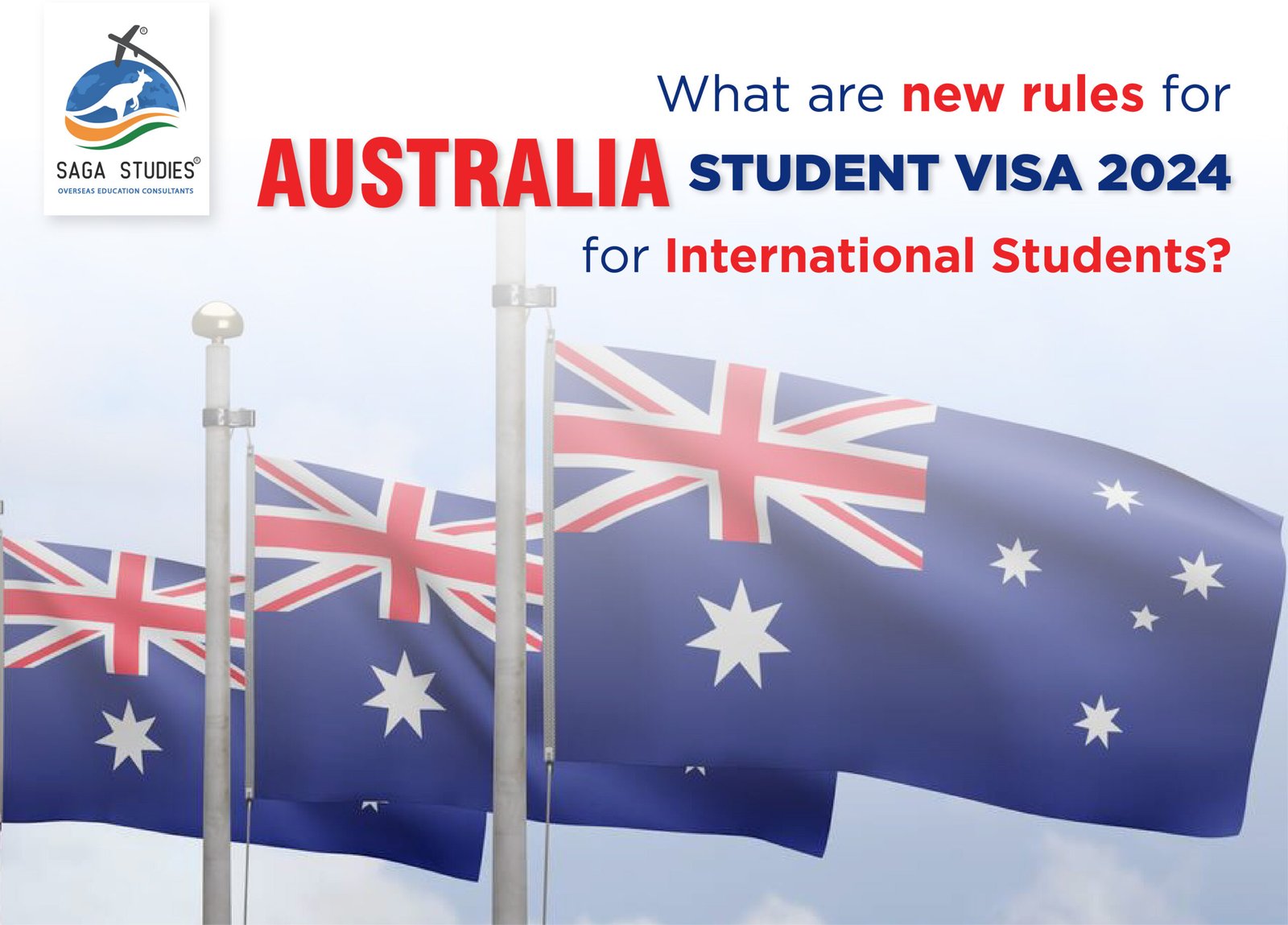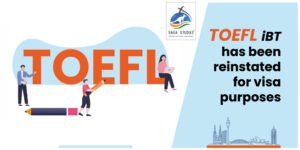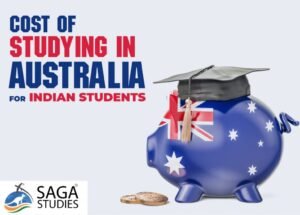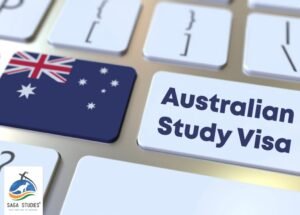Navigating the dynamic Australian visa landscape can be a challenge for international students and migrants. Saga Studies is here to simplify this with our comprehensive guide on the latest updates concerning the Australia Student Visa. This essential resource is designed to keep you informed and enhance your application process.
Our guide provides crucial updates on the most recent changes in the Australia Student Visa program. Understanding the specific requirements for Australia Student Visa is key to a successful application. Gain insights into improving your application’s success rate with our expert tips. We’ll guide you through common pitfalls to avoid and best practices to adopt during your application process.
If you’re preparing to apply for an Australian Student Visa and need some guidance, don’t hesitate to reach out to us. Saga Studies offers free visa advice and the opportunity to book consultation with our experienced education counsellors. Whether you have questions or require detailed assistance, we’re here to help you succeed in your journey to studying in Australia. Maximize your chances of approval by staying up-to-date with the latest Australia Student Visa requirements and leveraging professional guidance. Contact Saga Studies today to ensure your visa application is as strong as possible!
Understanding the Importance of New Regulations:
1. Enhanced English Language Requirements for Australian Student Visas in 2024
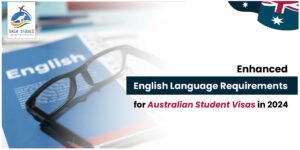
The Australian Government has announced significant updates to the English language requirements for Student and Temporary Graduate visas as part of its 2023 Migration Strategy. International students will experience enhanced education and better preparation for the Australian workforce starting from March 23, 2024 with these changes. Here’s a breakdown of the key adjustments:
- Student Visa: The required IELTS score has been raised from 5.5 to 6.0.
- Temporary Graduate Visa: Applicants must now achieve an IELTS score of at least 6.5, up from 6.0.
- English Language Intensive Courses for Overseas Students (ELICOS): The IELTS score requirement has increased from 4.5 to 5.0.
- Foundation or Pathway Programs: The IELTS requirement remains at 5.5.
English Language Requirements for Temporary Graduate Visas (TGV):
The minimum IELTS score has risen from 6.0 to 6.5, including a 5.5 for each exam component (reading, writing, speaking, and listening). Applicants must provide documentation of having passed an English language exam that satisfies these standards within one year of the visa application date.
2. Visa authorities have reinstated TOEFL iBT:
Authorized centres are once again accepting TOEFL iBT tests for student visa applications, with the condition that the tests are taken in person. Tests conducted between July 26, 2023, and May 4, 2024, are invalid, while those taken before July 26, 2023, are valid for two years.
3. New Genuine Student (GS) requirement

Formerly, the Genuine Temporary Entrant (GTE) evaluation was required of overseas students seeking visas to study in Australia. Among other things, this needed submitting a 300-word personal statement. But as of March 23, 2024, the Australian government has substituted the Genuine Student (GS) criterion with the GTE requirement.
The new GS criteria do not call for applicants to send in a comprehensive personal statement. They will have to answer focused inquiries that shed light on their goals and situation instead. This streamlined approach focuses on:
- Current circumstances include family, community ties, and financial status.
- Reasons for selecting a specific course and choosing Australia as a study destination.
- Benefits of the chosen course and any relevant previous study experiences in Australia.
- Intentions for applying for a student visa if currently holding a different visa type.
Question answers from applicants must be in English and cannot exceed 150 words. Accompanying the information on the application form with supporting documentation is crucial. The Department of Home Affairs website has further detailed the kinds of proof and material to provide.
Evaluation Criteria by Australian Immigration Authorities
Simplified Application Process – The applicant now responds to targeted questions instead of writing a traditional 300-word personal statement, providing clearer contexts of their intentions and background.
– Comprehensive Documentation
- Academic Transcripts and Certifications: Proof of academic achievements and qualifications.
- Employment Documentation: Information about current employment, if applicable.
- Economic Documents: Includes bank statements and tax returns to assess financial stability.
- Home Country Ties: Details about family and community ties that indicate the applicant’s likelihood to return after their studies.
– Academic and Financial Assessments
- Academic Preparation: Evaluation of academic records to ensure they meet the course requirements.
- English Proficiency: Assessment of language skills through standardized tests like IELTS or TOEFL.
- Financial Capacity: Analysis of the applicant’s financial resources to cover educational and living expenses in Australia.
– Institutional Credibility and Course Relevance
- Educational Institution Credibility: Verification of the institution’s reputation and accreditation.
- Course Relevance: Examination of how the chosen course aligns with the applicant’s academic background and career aspirations.
– Immigration History and Post-Study Plans
- Immigration Background: Consideration of previous international travel and visa history.
- Post-Study Intentions: Plans after completing studies, including potential employment opportunities or returning to the home country.
The Australian immigration authorities ensure that students are genuinely interested in acquiring quality education and are committed to upholding the conditions of their stay in Australia through this comprehensive approach. Understanding these details is crucial for any international student aiming for a successful educational journey in Australia.
4. Revised criterion for financial capability

Recently, Australia has updated the financial capacity requirements for Student and Student Guardian visas, raising the minimum savings a student must show before entering the country. Starting from May 10, 2024, international students will need to demonstrate that they possess at least A$29,710 (approximately ₹16,63,760), which reflects 75% of the national minimum wage. This adjustment applies to visa applications lodged on or after this date. Whereas the revision in financial requirements is designed to ensure that students can comfortably cover their basic living expenses while studying in Australia.
This is particularly important considering that students may not be in class for about 25% of the year, during which they might engage in part-time work. By showing greater financial reserves, students can better plan their stay and academic commitments in Australia.
This change marks the second increase in the required amount of savings within seven months, following a previous adjustment in October, which raised the minimum from A$21,041 (₹11,78,296) to A$24,505 (₹13,72,280).
5. Additional Visa Changes Set for July 2024
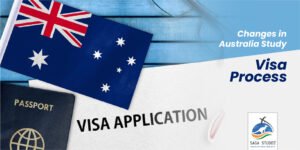
In alignment with Australia’s strategy to attract early career professionals who can significantly contribute to its economy, the eligibility age for the 485 visa will be reduced to 35 years. Reflecting this target demographic, the visa streams will rename as:
- Post-Higher Education Work Stream (previously the Post-Study Work stream)
- Post-Vocational Education Work Stream (previously the Graduate Work Stream)
These streams are set to better support young professionals in transitioning from education to career-building roles within Australia. These changes will take effect from July 1, 2024.
Specifics for Various Nationalities and Programs:
- Hong Kong and British National Overseas passport holders will continue to be eligible for up to five years under the new rules, even if they are under 50 years of age.
- For Indian nationals, under the Australia–India–Economic Cooperation and Trade Agreement (AI-ECTA), the allowed stay durations will vary by degree:
– Bachelor’s degree (including honours): up to 2 years
– Bachelor’s degree (first class honours in STEM, including ICT): up to 3 years
– Masters (coursework, extended, and research): up to 3 years
– Doctoral degrees (PhD): up to 4 years.
Moreover, to enhance transparency and predictability for employers and students alike, the processing times for the ‘Post-Higher Education Work Stream’ of the 485 visas will be subject to a 21-day service standard.
These updates to Australia’s student visa program reflect the country’s commitment to maintaining a robust, competitive educational environment that supports international students and aligns with broader economic goals. Hence, Students planning to study in Australia should take these new requirements into account when preparing their visa applications and financial planning.

